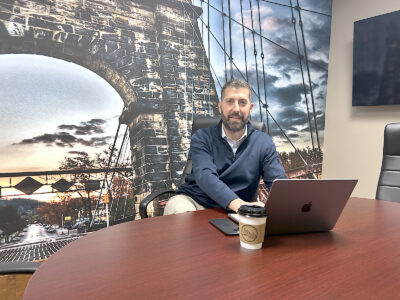
ARTICLE: Fort Henry Advisers Keep Clients on Track


Fort Henry Advisers Keep Clients on Track
WHEELING — Fort Henry Capital is a Wheeling-based financial planning and management firm that helps people in the Ohio Valley and beyond plan for the financial future they want.
Russell Dunkin, one of the founders and a financial adviser with Fort Henry, said he’s seen more remote client relationships, a larger focus on planning for the future rather than investing and a shift in how the current political and social media environment plays into his advising.
One of the biggest changes Dunkin has seen over the course of his career has been the growing accessibility of services from anywhere in the world. The firm started just over 11 years ago with clients in 10-12 states that largely all still had a tie to the Wheeling area.
Now, Fort Henry serves clients in over 20 states, some of whom live and work entirely outside of West Virginia.
Before this, “things were a lot more locally centralized. There were no Zoom meetings,” Dunkin said.
The COVID-19 pandemic made working remotely more socially acceptable, he added.
The company took on a lot of new, entirely remote relationships in 2020 because of this, although he still makes an effort to meet clients in person at least once every few years.
Dunkin grew up in the local area and went to Capital University in Columbus, where he majored in economics and finance.
He jokes that he should have instead majored in psychology because so much of financial advising comes down to interpersonal relationships and understanding his clients’ personal fears and goals in life. It’s all about guiding people to make the right decisions for them, he said.
One change Dunkin has seen in the last five years has been how much social media and politics work together to raise common concerns and questions among clients.
“People have always been liberal, they’ve been conservative, whatever they might be,” Dunkin said. “However, what I’ve noticed the last handful of years is that it is driving more of their decisions with money, how they ask questions, things that they are concerned about.”
Certain events, like President Donald Trump’s proposed tariffs, prompt financial questions. Even things like the election results and how confident people are feeling about the future of the country can influence the things they are asking about financial planning.
“I can usually tell when someone calls in with a question … you can sort of read between the lines and see what people are concerned about,” Dunkin said.
Another trend he has seen is how financial advising has shifted from being largely focused on investing to an emphasis on strategizing for the future.
“Decades and decades ago, it was more about picking stocks and just the investment side and it’s shifted much more to being more focused on planning,” he said.
Though the internet has allowed for more information on financial planning to be easily accessible, he sees the need for advisers still being prevalent, he said. Simple things like fear or greed can drive financial decision making and lead clients astray, he said.
“Having the information and knowing how to apply it tend to be two different things. A lot of the information is out there, but emotions drive so much of what can go wrong in our industry,” he said. “Working with an adviser who knows your situation can help you not make those mistakes.”
Similarly, Dunkin said fear of missing out can play into poor investment choices. With more and more “crypto currency” equivalents popping up, clients are more susceptible to scams and illegitimate investments because they may see others having quick financial success.
This is why having an adviser to remind them of their long-term plan and tie decisions to their future remains important, Dunkin said.
Technological advancements have also made processes much faster. Advisers used to be required to fill out a paper ticket to invest from a client’s account. Now, everything is digitalized and can be done in a matter of hours, Dunkin said.
“So far that’s something we have taken advantage of, and I think that will continue,” he said.